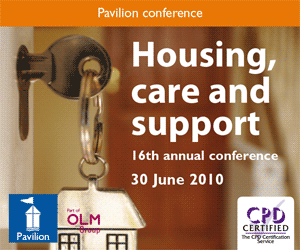
Online access is now Free. If you have an existing subscription click here for more information
Lunchtime news Wednesday 12th September 2007
12/09/2023
The Council of Mortgage Lenders (CML) revealed yesterday, a 9 per cent fall in the number of home loans taken out in July, from the same month last year – 93,700 compared to 103,000. Even on a month-by-month basis the figures drops by more than 5 per cent. The number of mortgages taken out by first time buyers fell even faster, down by 12 per cent from July 2006. First time buyers also have to borrow almost 3.4 times their gross annual salary, compared to 3.23 a year ago – paying out just under 20 per cent of their salary in interest repayments (July 2006: 16.6 per cent). The CML tried to play down the figures, saying that this was the third year in a row that a fall in lending has occurred between June and July.
But further evidence that a slowdown in the market is inevitable comes with figures showing that borrowing rates for buyers rose sharply in August. Whilst the Bank of England’s official rate remains at 5.75 per cent, millions of households face an increase in their mortgage rate of almost a quarter per cent to their highest rates since the end of 1998. The standard variable rate (SVR) – one of the most popular types of mortgages, rose to 7.69 per cent. The Abbey has said that it be the first high street bank to raise rates as a result, with Standard Life saying it will follow suit.
Meanwhile the Conservative Party has released details of a quality of life report due tomorrow. A proposal entitled Localhold has the Tories promising to stop rural villages becoming the preserve of the ‘middle class and middle aged’ by offering incentives for landowners to provide land for development on the guarantee that it is only offered to local people and families. The chair of the commission coming up with the proposal, John Gummer, is also planning on suggesting that more dense housing in inner cities is needed – not just more affordable housing, but also those worth more so that people can move up the scale as required, releasing the affordable options for those further down the property ladder.
This hasn’t stopped a group of leading environmental organisations from accusing the Labour party, Tories and Lib-Dems of falling short in their responses to the green agenda. Nine environmental organisations, representing over 5 million supporters, today published ’the Green Standard’ an assessment on the three main political parties. They found the Lib Dems faired best as they offer the ‘strongest set of policies on climate change, green taxations and green living.’ The Labour party fell down on its renewables and emission targets, while the Conservatives faced the most challenging problems given the ‘diverging views’ with the party. All parties failed in giving sufficient attention to policies to protect and enhance the countryside and wildlife. The standards were based on six tests in climate change – both UK and international; green living; natural environment; planning; and environmental tax and subsidies.
Previous article: Lunchtime news Tuesday 11th September 2007
Next article Lunchtime news Thursday 13th September 2007
All tags
Blog archive
2010
2009
- December 2009
- November 2009
- October 2009
- September 2009
- August 2009
- July 2009
- June 2009
- May 2009
- April 2009
- March 2009
- February 2009
- January 2009
2008
- December 2008
- November 2008
- October 2008
- September 2008
- August 2008
- July 2008
- June 2008
- May 2008
- April 2008
- March 2008
- February 2008
- January 2008
2007
- December 2007
- November 2007
- October 2007
- September 2007
- August 2007
- July 2007
- June 2007
- May 2007
- April 2007
- March 2007
- February 2007
- January 2007



No comments have been made on this article yet.